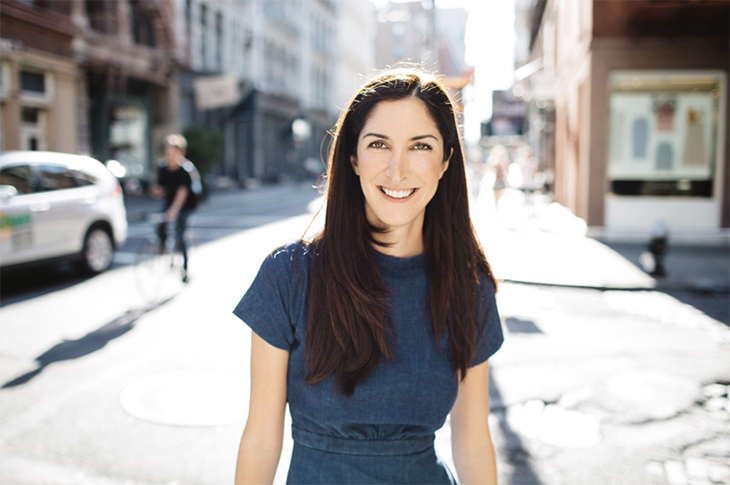
Entrepreneurial spirit and dedication are the driving force behind every successful company. Whether the business serves a localized market or competes on a global playing field, the dynamics are the same. For seasoned early stage and angel investor Steph Korey, these dynamics serve as the backbone for success.
Transforming the entrepreneur’s vision into a tangible product or valued service takes a host of resources, though. First, the business owner brings their singular expertise to the table. He or she complements this know-how with business knowledge and networking skills.
Supporting team members often work alongside the entrepreneur. While focusing on the company’s mission statement, they execute the day-to-day tasks that move the new business forward.
Financial Resources Drive Goal Achievement
As with any business endeavor, sufficient financial capital is the key to a company’s growth. To illustrate, a product-driven business needs funds for market research, product development, and initial production.
Substantial capital will also be required for product distribution, sales infrastructure, and marketing campaigns. The business’ accounting program tracks its financial operations while the internal computer system ensures data integration into every aspect of the company.
Several types of funding vehicles provide this business start-up and development capital. Small business loans have long been a traditional funding option. Today, angel investors, venture capitalists, business incubators, and business plan competitions also play prominent roles in the business funding landscape.
Many Talented Entrepreneurs Have Been Left Behind
Talented, passionate entrepreneurs come from all ethnic and cultural groups. Ideally, funding sources would mirror this demographic makeup, with capital distributed in accordance with universally accepted guidelines.
However, in October 2020 business news network CNBC highlighted a recent Crunchbase report that strongly contradicted this assumption. The report showed that Black and Latinx business founders received only 2.6% of total venture capital funding to that date.
Marlene Orozco, the Stanford Latino Entrepreneurship Initiative’s lead research analyst, represents one of 11 groups that partnered with Crunchbase on this report. She states that “The lack of funding to Black and Latinx founders is a result of historical gaps in community wealth followed by limited exposure and opportunities to secure capital.”
Seed Funding’s Role in the Process
For perspective, Crunchbase data analyst Gene Teare explains that a startup typically receives seed funding very early in the process. This funding is often based on the founder’s credibility and network strength. Once they receive that capital, they can launch the business and position themselves for additional funding rounds based on business metrics.
However, many Black and Latinx founders lack access to startup capital networks. In addition, lower personal wealth levels mean they are frequently undercapitalized from the outset. Given those issues, Teare notes that these entrepreneurs often have difficulty moving to later funding rounds.
Steph Korey Promotes a New Paradigm
Accomplished entrepreneur and investor Steph Korey has recognized the disconnect between entrepreneurial talent and opportunity. She has made it her mission to change that paradigm – one investment at a time.
Korey is an angel investor who has provided support to several startup and early-stage companies. She has mostly selected businesses founded by entrepreneurs from underrepresented communities.
Snapshot of an Angel Investor
Early-stage startups frequently seek angel investors to provide much-needed financial resources. An angel investor is a highly successful entrepreneur who invests in small emerging business ventures. In return for their investment, the angel investor typically receives part ownership of each new company.
In contrast to venture capital firms that pool investors’ funds, angel investors typically contribute their own money to each targeted investment. Accredited angel investors have met certain financial criteria, and they have more than $1M in assets or at least $200K in annual income.
Angel investors have been part of the business funding landscape for decades. However, this funding vehicle has seen more widespread use in recent years. In addition, the average angel investment continues to grow on a year-over-year basis.
Summary of Steph Korey’s Investments
Steph Korey’s currently active investments reflect her focus on health and sustainability. Each business venture also utilizes technology in a distinctive way.
- Veracity Selfcare (September 2021): Veracity Selfcare uses Skin + Health Test data to create personal skincare experiences.
- Starday Foods (August 2021): Starday Foods offers healthy, sustainable food products to its customer base.
- Front of the Pack (July 2021): Front of the Pack delivers pure, simple dog nutritional supplements to its canine customers.
- Lovevery (June 2021): The Lovevery early learning platform offers children’s products and a parents’ information system.
- Parade (April 2021 and December 2019): The Parade underwear company offers undergarments with eco-friendly fabrics and designer pedigrees.
- Calibrate (June 2020): Calibrate is a digital metabolic health company focused on changing the conversation about weight.
- Great Jones (October 2018): The Great Jones modern kitchen company equips and inspires its customers to more frequently integrate cooking into their lives.
Entrepreneurs’ Potential for Positive Social Impact
Each entrepreneur creates a vision for their company. They ideally work toward achieving that vision by developing an overarching mission statement. To fulfill that mission, they formulate objectives and strategies that help to guide their business operations.
While obtaining financial success and industry recognition are important, Steph Korey believes a business can make a social impact at the same time.
“I have always believed it was possible to do well as a business, while also doing good in the world,” she explains.
Partnering with a Non-profit Group
To help achieve positive societal impact, many entrepreneurs partner with a non-profit organization that aligns with their personal and business goals. Steph Korey says successful companies and startups alike can make significant contributions.
“Start now, and think beyond just writing a check! You don’t have to wait until you’re able to donate money—instead, just identify the talents of your team and figure out how to leverage those talents to make a positive impact. Your employees will appreciate the opportunity to give back, and your partner will be grateful for the support no matter what shape that might take,” she concludes.
It All Begins with Storytelling
To direct potential supporters’ attention toward a specific cause, Steph Korey recommends that each brand harness its ever-evolving storytelling skills. During recent years, storytelling has proven to be an effective way to rise above the noise in an often-crowded marketplace.
Stated another way, the medium’s authenticity continues to stand out in a technology-driven business arena that often de-emphasizes the human element. Through effective storytelling, the audience absorbs the message while often retaining a positive impression of the business that delivers it.
About Steph Korey
Steph Korey combines finely honed business skills with an appreciation of culturally rich entrepreneurs’ talents. Born in an Ohio suburb, she gained exposure to varied cultures through her Romanian mother and Lebanese father.
During Korey’s early years, the family regularly traveled to visit relatives in the Middle East and Europe. Today, she believes those early experiences helped to cultivate her worldview.
“Exposure to different cultures has always been a part of my life. I’m lucky to have had the opportunity to travel so much with my family growing up, and it’s shaped a lot of my perspectives and how I see the world,” she remarks.
College Education Serves as a Springboard
Steph Korey’s college major was likely influenced by her culturally diverse background. She attended Brown University, where she earned a Bachelor of Arts in International Relations.
Next, Korey gained conflict resolution experience at the Atlanta-based Carter Center. Frustrated with government and non-profit sectors’ limitations, she began searching for a suitable private-sector job.
Entrepreneur Steph Korey found her niche at Warby Parker, a startup online eyeglasses retailer. As the company’s Head of Supply Chain, she led the team focused on product development, manufacturing, and distribution.
That informative experience showed her what a high-performing team could accomplish. “I learned so much about working at a fast-growing, direct-to-consumer brand, and about how to build a supply chain from the ground up,” she remarks.
Steph Korey’s Warby Parker tenure also provided the impetus for her MBA journey. While pursuing her MBA at Columbia Business School, she served as a merchandise strategy consultant for Casper, the fast-growing direct-to-consumer (or DTC) mattress brand.
Putting Her Insights to Work
Reflecting on both opportunities, Steph Korey notes how a well-executed DTC model could enable a company to successfully market a higher-end product directly to its customers. “I saw how the direct-to-consumer model could allow a business to create a premium product at a lower price point by cutting out the middleman and selling directly to customers,” she emphasizes.
Korey also saw that developing a successful brand involves more than creating a timely product. Again, impactful storytelling that resonates with the audience is the key.
“My experiences at Warby and Casper also proved that a brand’s success is determined by so much more than just a great product. People don’t get excited about eyeglasses or mattresses—they get excited about the story those brands are telling,” she stresses.
In 2015, Steph Korey channeled her expanding entrepreneurial skillset and co-founded global lifestyle brand Away. During her leadership, the firm raised $156M and achieved a $1.4B valuation. In addition, Away was voted one of Fast Company’s Most Innovative Companies twice during her tenure.
Steph Korey’s Notable Achievements
Today, Steph Korey gains satisfaction from her role as an angel investor. In recognition of her achievements, she was previously named to Forbes’ 30 Under 30 list for Retail and eCommerce.
In addition, Korey has been honored as an EY Entrepreneur of the Year. In 2018 and 2019, Goldman Sachs named her to its 100 Builders + Innovators list. She currently lives in New York City with her husband and daughter.
As more emerging companies populate the business landscape, Steph Korey focuses on supporting entrepreneurs who might otherwise be excluded from funding opportunities. She is confident that her efforts will play a key role in each company’s growth.


